By Dr Tian Ho-Heng Roger, MBBS(Spore), MRCSEd, MMed(Surgery) MSpMed(NSW), ACSM Exercise Specialist
Sports Physician, Singapore Health Services
Have you ever:
- Felt tired even before training starts?
- Found it difficult to concentrate in school or at work?
- Started a training session full of energy, but felt burned out halfway?
- Felt your performance was going downhill, even though you're training harder and harder?
- Experienced hunger, nausea, or giddiness during prolonged training sessions?
If you've answered "YES" to any of the above, then you may benefit from examining and changing your eating habits. For athletes, knowing what, when and how much to eat will not only have an effect on sporting performance, but will also benefit adaptation and recovery from training, as well as reduce the risk of certain injuries. (International Olympic Committee Consensus Statement on Sports Nutrition, 2003.)
The Training Diet
Active people require extra nutrients and energy to meet the demands of their lifestyle. Ask yourself whether your meal provides
- Sufficient energy for training/competition, and school/work?
- Adequate protein for muscle growth and repair?
- Too much fat?
- Vitamins and minerals to protect me from illness?
- Fibre for gut health?
- Fluid to prevent dehydration and heat-related illness?
If you are driving a Formula One race car, would you fill its tank with inferior quality petrol? Similarly, the "fuel" that you put into your mouth should help your body perform at its best.
Carbohydrates
Carbohydrate is stored in our body mainly as glycogen in the liver (70g) and muscles (400g). It is rapidly converted into energy in the muscles, and is hence the preferred fuel for high-intensity exercise (e.g. basketball, soccer, 2.4km run, 100m swim). The amount that can be stored is limited and easily depleted by fasting (e.g. overnight fast) or prolonged exercise. Hence, our daily diet must replenish this source.
How much to eat is influenced by muscle mass and activity level.
[TABLE=243]
Source: Department of Sports Nutrition, Australian Institute of Sports, 2004
Example
John, a 70 kg swimmer, trains 60 min/day at moderate intensity.
Carbohydrate requirements = 70kg x 7g/kg/day = 490g/kg/day.
Number of carbohydrate serves needed
1 serve = 15g of carbohydrate
490g/kg/day ÷ 15 = 33 serves
Examples of foods providing 15g carbohydrate serves
– 1/3 cup of rice/noodles
– 1 slice of white bread
– 1 medium potato
– ½ cup corn
– ½ cup cereal
– 1 piece fruit (eg. papaya slice, medium banana)
– 10 grapes
– 300ml low fat milk
– 100g low fat yoghurt
– 1 Tbsp jam/honey/sugar
– 250ml sports drink
– 200ml cordial/fruit juice
– ½ can soft drink
Hence, to meet his daily carbohydrate requirements, John should consume 33 serves from a mixture of the above.
To avoid undesirable weight gain, choose foods that are low in fats. Nutritious carbohydrate-rich foods include rice, noodles, pasta, potatoes, bread/flour-based products, cereals/cereal bars and fruits
High-fat carbohydrate foods that should be avoided or consumed sparingly include pastries (curry puff, croissants), chocolates, ice cream, potato crisps/chips, hamburgers, roti prata, roti john, laksa, chicken rice, claypot rice, instant noodles and chendol.
When to eat, what to eat?
PRE-TRAINING/COMPETITION MEAL
Aim – Top up fluid and fuel supplies; prevent hunger
Recommendations
– eat a low fat, low bulk meal 2-4 hours before the event
– small high carbohydrate snack 1-2 hours before
– choose low fat, low fibre and low bulk foods
DURING ACTIVITY (≥1 HOUR)
Aim – provide additional fuel to the muscles, hence aiding performance and delaying fatigue.
Recommendations
– consume 30-60g/kg body weight/hour of exercise e.g. sports drinks (6-8g carbohydrate/100ml) or low bulk snacks. Sports drinks also provide fluids for your hydration needs.
AFTER TRAINING
Aim
– muscle repair and adaptation
– replenishment of muscle and liver glycogen stores
Recommendations
– consume 5-7 serves of carbohydrate rich food (1-1.5g/kg body weight) within 30 minutes of exercise (your muscles are hungriest during this period)
– repeat every 2 hours
– replace fluid losses
– recovery meals should also contain some salt (sodium) and protein
Try to consume carbohydrate within the first 30 minutes of exercise, as your muscles are hungriest during this period. Eating after exercise is even more important if you have another training session/event within the next 8 hours.
Sources: American College of Sports Medicine; Sports Dietitians Australia

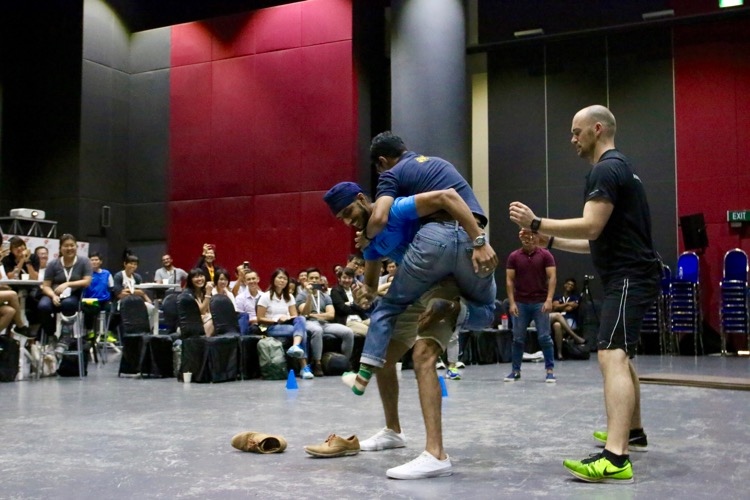

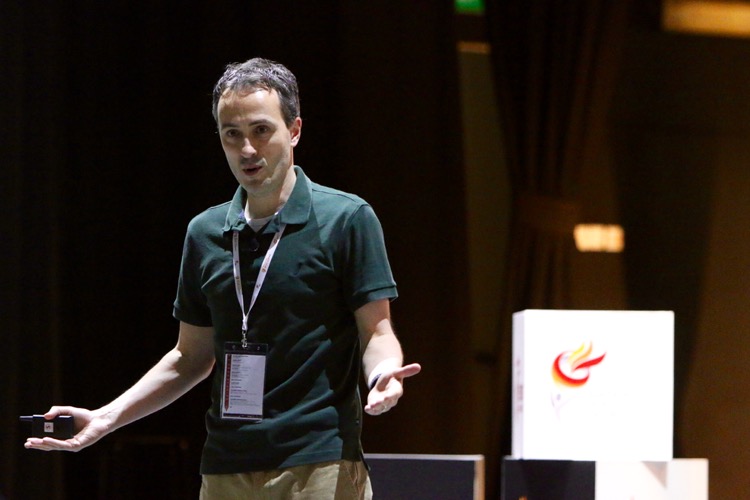
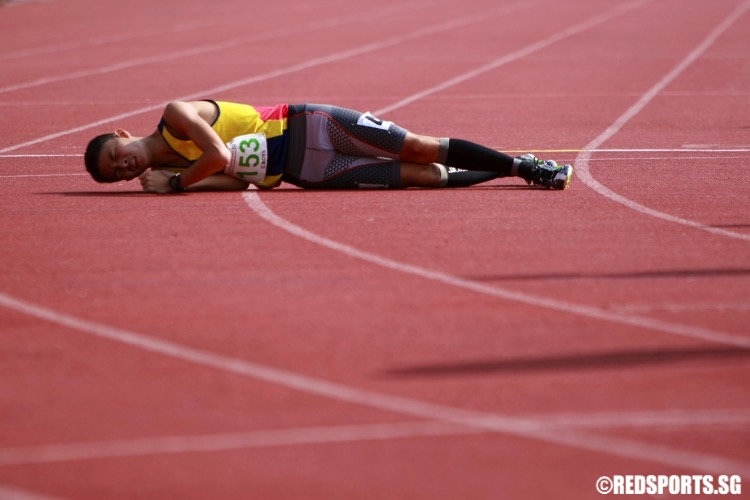
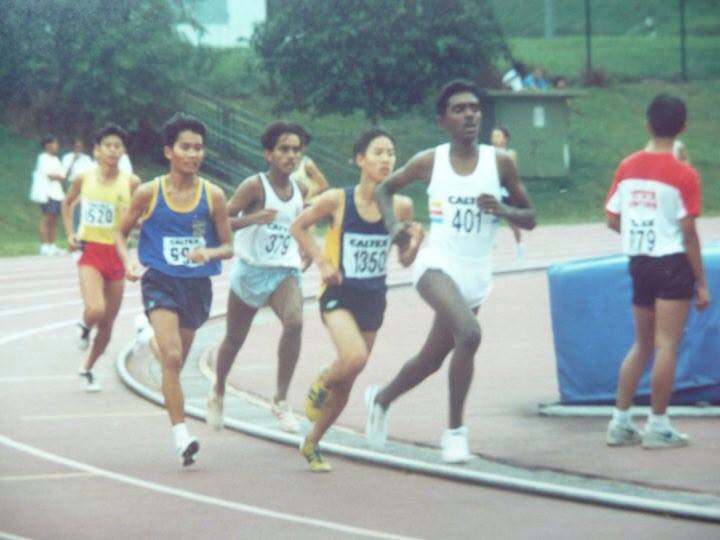
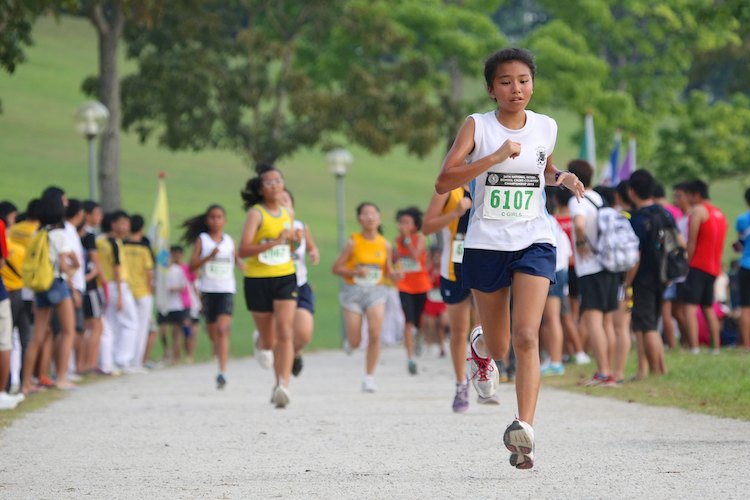
This works best only for carbohydrate tolerant individuals who are fairly lean already (10% fat or so – men, 15%-17% women). and how many people do you know who are really 10% bodyfat? that means pretty visible abs!
And I would stay away from grain based sources as well. Get the carbs from fruit, veggies and natural starches like sweet potatoes and yams.
If john (swimmer in question) is more than 10% body fat he should be taking perhaps 30g of starchy carbs before and 50g after swimming. that is all! The rest of the day he should be eating veggies, maybe fruit if hes lean, meat and healthy fats.
the 490g of carbs is going to make john a fat boy… 33 slices of white bread?
Yes Olympians take lots of carbs. But olympians are also genetically elite and (especially endurance athletes) handle carbs well and train 4 hours or more per day. That is not me and most likely not you.
Watch out for starchy carbs, especially grain based ones.